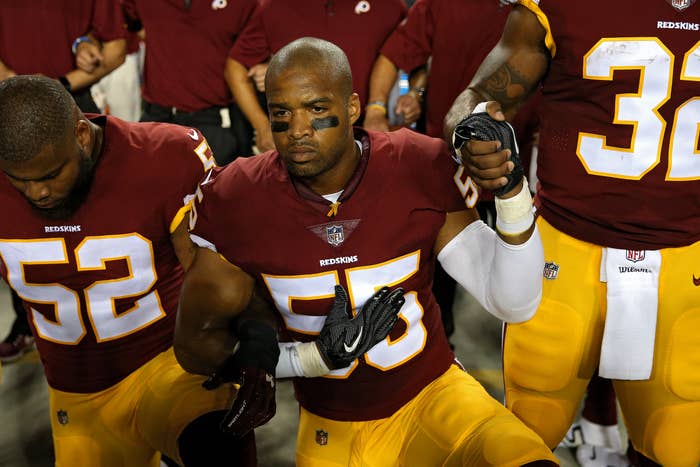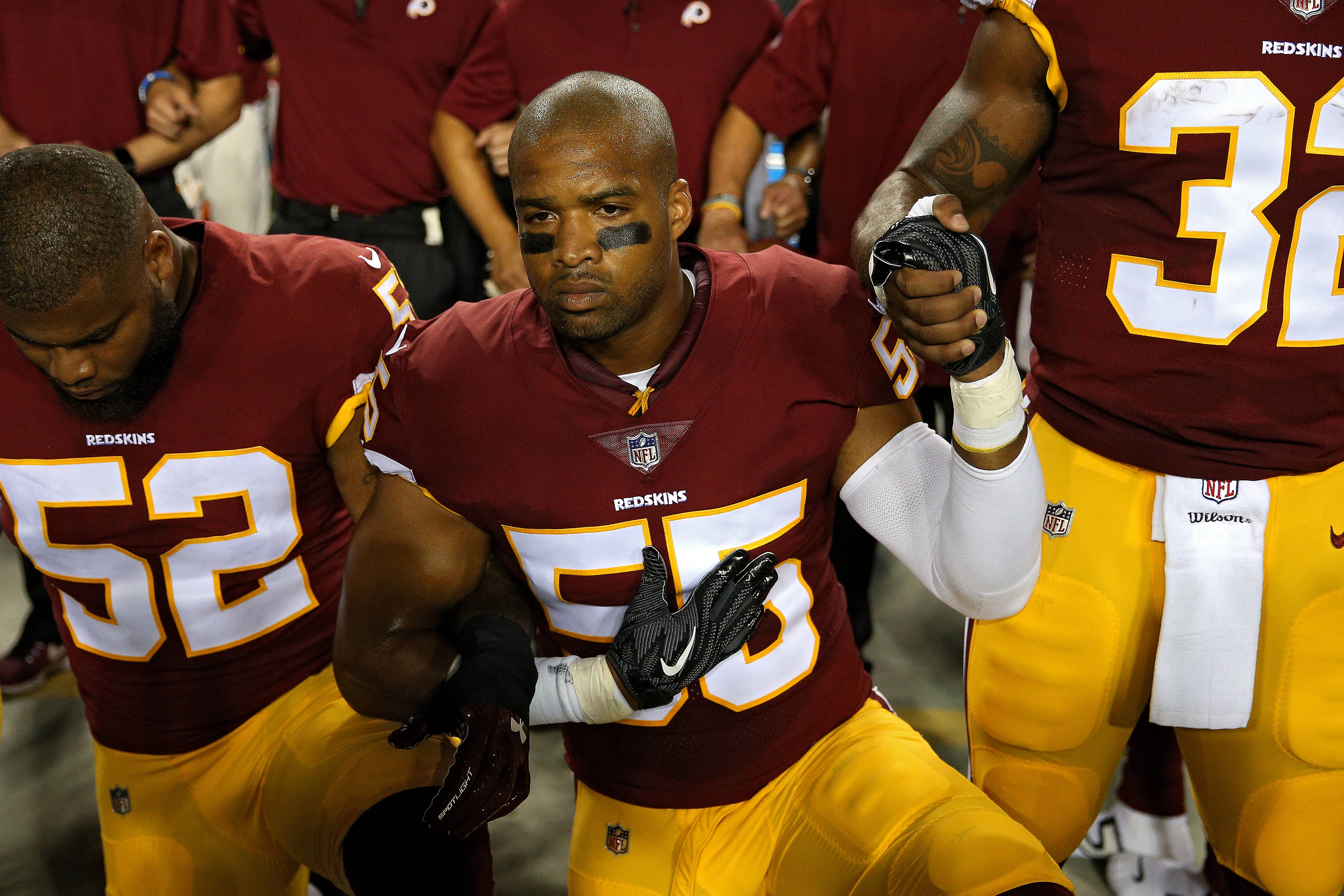
During the anthem protests that prompted a number of players and entire teams to kneel during the "The Star-Spangled Banner," many found themselves questioning how NFL executives—the men who run the league's operations—were going to react. There were a number of ways the league could have responded, however it came down to two general approaches. One being a response rooted in unity, and solidarity against the president's bigoted remarks, or one of division in which league executives hang their players and the coaches who spearheaded the protests, out to dry.
Needless to say, the administrative powerhouse behind the league's enterprise, men like DeMaurice Smith and Roger Goodell, chose to take a stand against the president. Although the formal response from the league was one of tolerance for the politicization of the NFL, in a recent exclusive by ESPN, Goodell reportedly called Smith and asked him to call the protests off.
When asked about Roger Goodell's approach to the kneeling, Demaurice Smith explained that "It certainly was my takeaway that the commissioner was looking for a way for the protests to end." However, when asked by the Commissioner to find a way to steer the protests to an end, Smith made it very clear that he wasn't comfortable forcibly ending the protests. "My only response was, 'I don't have the power to tell our players what to do.' ... At the end of the day, this is a group of players who are exercising their freedom. There is no room for me to snap my fingers and tell our players, 'It's time for you to give up a freedom.' Just the idea offends me. It's almost as if the players are being asked, 'What's it going to take for you to stop asking to be free or to be treated like an American?'"
Therefore after the protests became the spotlight of an entire lineup of Sunday football, team owners and NFL executives met in New York City in part to discuss the anthem protests and the league's correct response. However, prior to meeting in NYC, Joe Lockhart—the league's VP of Communications—had explained to the press in a conference call with reporters, seemingly unadvised, that, “Everyone should know, including the president, this is what real locker room talk is.” This was undeniably targeted at the president, making reference to the scathing Access Hollywood video in which Donald glorifies rape culture with Billy Bush, later calling it "locker room talk."
The league continued to conduct meetings following the anthem protests. It's likely that these conferences attempted to alleviate the possibility of having a response lead to the league cascading into financial trouble, but also wouldn't bow down to a president who had been aggressively undermining their players on social media. Finally, Goodell reminded the press, "We can't just tell them to stop."
The ESPN exclusive didn't allude to there being a kum-ba-yah session behind the scenes. The authors acknowledge the divide between the two camps in opposition—to politicize football or not to politicize football. However, the owners and executives later made it seem as if there was one unified approach. It seems as though the situation was alleviated in part because the disagreements came down to personal preference. As 49ers owner Jed York reminded the group, "We need to respect First Amendment rights, regardless of our personal feelings of the actions involved,"
One of the more compelling angles of this entire dichotomy is that football tends to be seen as middle America's trophy. The south, and certain states in particular like Texas and South Carolina, hold football both college and professional, above almost any other sport. It's then worth mentioning that these same geographical areas are also Trumpian stomping ground, where the Tea Party found its roots. This is part of the reason why the league's support of players' decision to kneel was so respectable because it's no surprise that the NFL has spent the better part of its history catering to white men. At least for now, they responded with a message of unity and not one of racial injustice.

